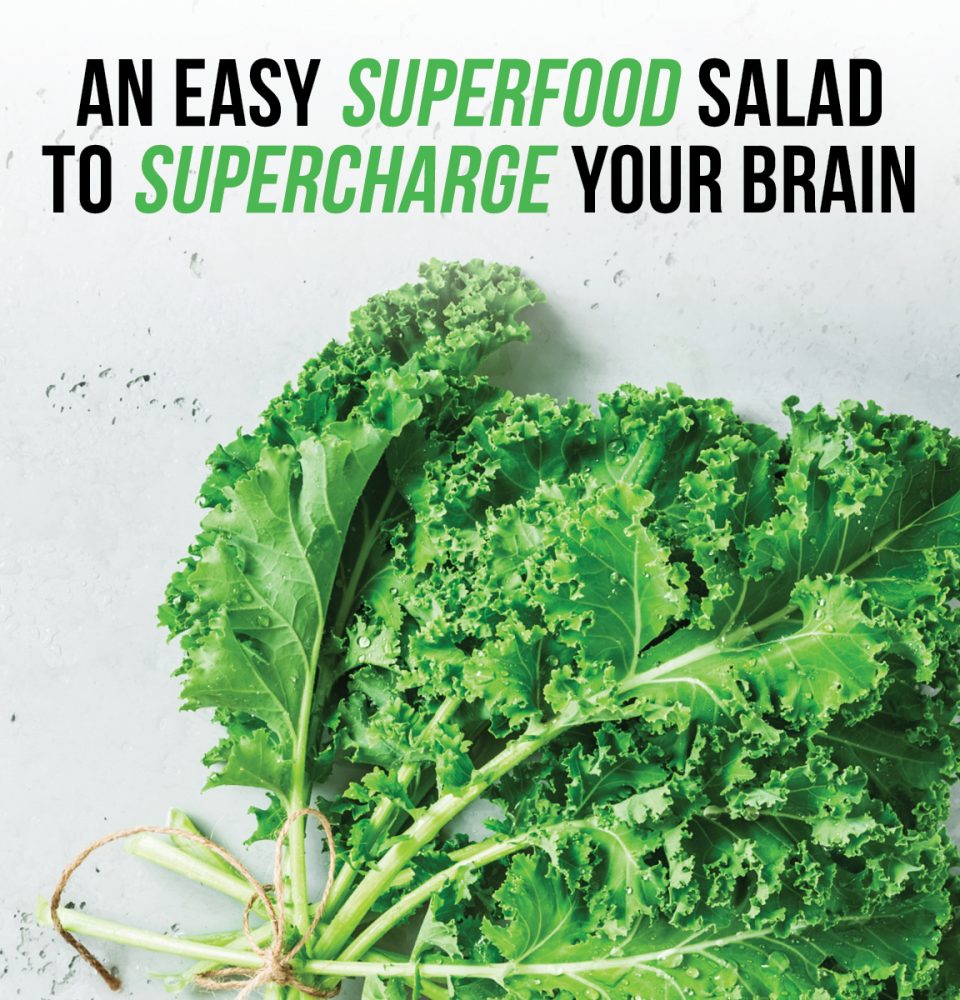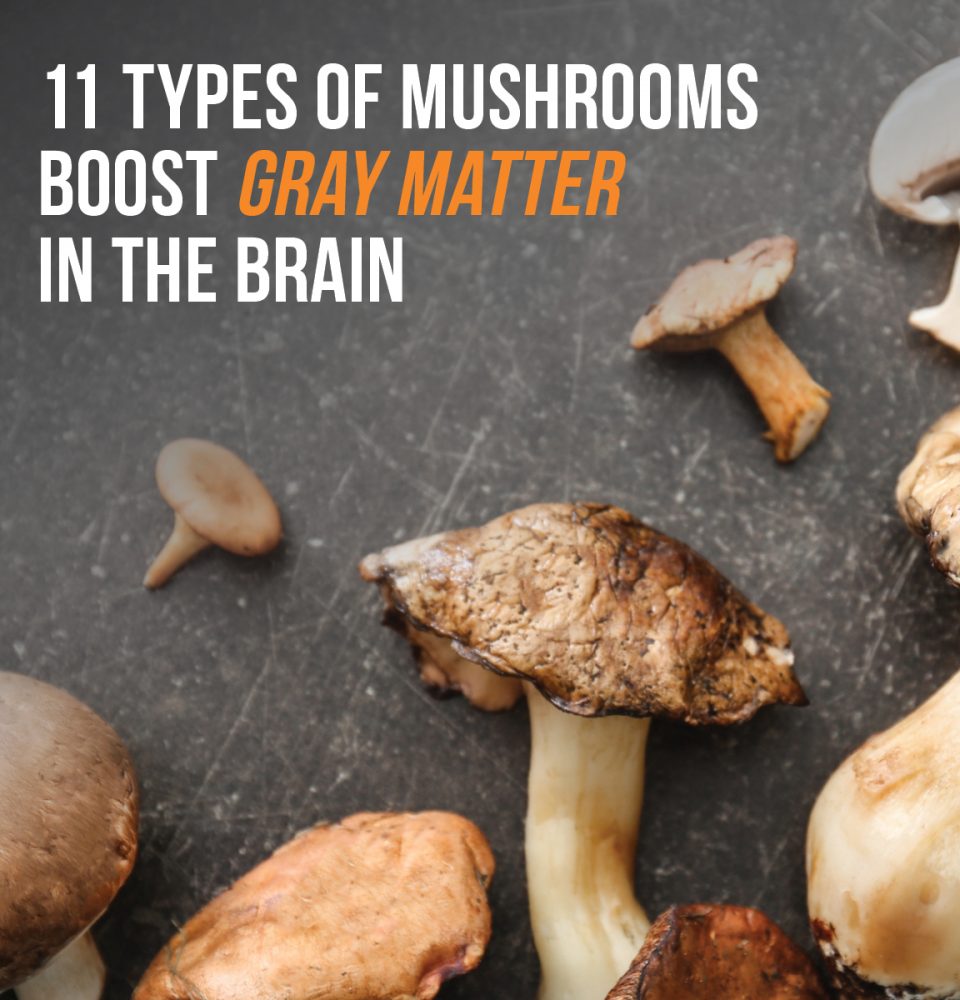Supercharge your brain with an easy superfood salad for lunch or dinner.
Serves 2
Ingredients
Ginger and honey salad dressing:
- 1/2-inch fresh ginger, peeled (reduces inflammation)
- 3 tablespoons apple cider vinegar
- 1 tablespoon honey
- 1/2 cup avocado oil (promotes healthy blood flow to the brain)
- 1 1/2 teaspoons Dijon mustard
- 1/4 teaspoon salt
- 2 tablespoons water
For the salad:
- 2 salmon filets, cooked (Omega-3s help build brain and nerve cells)
- 4 cups fresh kale (brain-boosting vitamin K)
- 1 avocado (promotes healthy blood flow to the brain)
- 1/2 cup blueberries (rich in antioxidants)
- 1/4 cup pomegranate seeds (also high in antioxidants to fight free radicals)
- 1/4 cup walnuts (brain-boosting antioxidants, Omega fats and vitamin E)
- 2 tablespoons hemp seeds (high in antioxidants, Omega-3s and vitamin E)
- 1 cup cooked beets (natural nitrates that promote blood flow to the brain)
Directions
- Place apple cider vinegar, honey, ginger, Dijon mustard, avocado oil, salt and water in blender. Blend until smooth.
- Place spinach, avocado, blueberries, pomegranate seeds, walnuts, beets and hemp seeds in large bowl. Drizzle with the honey ginger dressing.
- Arrange salad on plates and top with cooked salmon. Delicious!
Will you be making this recipe? Post a photo of your marinated kale salad using the hashtag #MAMRecipe






